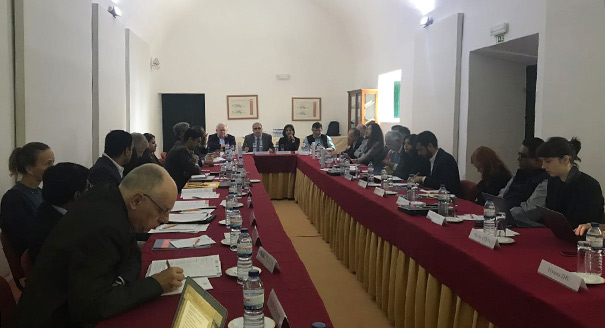Registration
Thank you!
You will receive an email confirming your registration.
As Europe diversifies its partnerships with Asia, India will be a central actor with a rising capacity to influence international politics. The European Council on Foreign Relations, Carnegie India, and Fundação Oriente organized the first annual India Strategy Group (ISG), a high-level track 1.5 India-Europe dialogue, to bring together key stakeholders from politics, government, business, think tanks, and media from India, the European Union (EU), and EU member states.
Discussion Highlights
- India-EU Ties at Political Crossroads: Participants noted that both India and Europe have increasing political will to improve their relationship. Europe views India as a central actor in a multipolar Asia. In the wake of Brexit, India seeks to strengthen its relationship with the EU beyond bilateral engagements with European nations.
- Enhancing Trade and Investment: Indian participants argued that trade is too crucial a matter to be left to the EU Commission and Indian trade negotiators alone. They highlighted the importance of including other institutions in economic dialogues, such as the Ministry of External Affairs. European participants agreed that there was a need to include participants from different government institutions so that economic goals can be more aligned with strategic goals.
- Nuclear Security Dynamics: Participants discussed the shortcomings of the nuclear non-proliferation treaty (NPT). They stated that the NPT has been successful in avoiding a nuclear catastrophe but is not equipped to deal with states like North Korea and Iran, nor with proliferation by non-signatory states like Pakistan and the challenges of next-generation nuclear weapons. Participants agreed on the need to establish a new international consensus on dealing with unstable states which have nuclear weapons.
- Future of Data Governance: Indian participants underlined that the debate around data governance and privacy is a major issue in India. They added that the real debate on data governance is not about managing data, but about the future of governance in the digital age. Participants stated that the EU needs to increase its presence and visibility in the present start-up space and technology debates in India.
- Securing Eurasia and the Indo-Pacific: Indian participants underscored the historic maritime trade connections between Europe and India, given the vast connectivity networks across Eurasian and Indo-Pacific routes. They noted the increase in cooperation between India and Europe in the Indo-Pacific represents an understanding that, given the increasing competition and militarization in the region, maintaining a rules-based order is absolutely critical. Participants emphasized the need for more interaction between Indian and European experts on maritime issues.
This event summary was prepared by Rhea Menon, a research assistant at Carnegie India.
